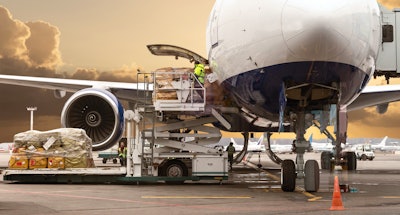
In today's fast-paced and interconnected world, the air cargo industry plays a vital role in global trade and logistics. To meet the growing demands and challenges of this dynamic industry, innovative technological solutions are imperative. The introduction and rollout of cloud-based solutions is and will continue to be a game-changer transforming the air cargo sector.
Here's why utilizing a cloud-based solution is not only the most advanced but also the most secure way of integrating and operating within the air cargo landscape.
Unleashing agility and scalability
The air cargo industry is notorious for its fluctuations in demand. Peaks and troughs in shipping volumes can put immense pressure on legacy systems, leading to inefficiencies and operational bottlenecks. This is where cloud-based solutions step in, as leveraging cloud infrastructure can offer unparalleled agility and scalability.
Within the cloud, airlines, GHAs and other stakeholders, can seamlessly adjust their IT resources based on demand. This elasticity ensures that operations run smoothly during spikes in traffic and allows for cost savings during quieter periods. For instance, consider a scenario where a holiday season leads to a sudden surge in cargo shipments. Using a cloud ecosystem, airlines and cargo handlers can effortlessly scale up their resources to accommodate the increased workload, all without disrupting ongoing operations.
Redefining collaboration and accessibility
The air cargo industry thrives on collaboration between various stakeholders, including airlines, ground handlers, customs authorities and freight forwarders. Traditional on-premises systems often hinder real-time information sharing due to their inherent limitations. Cloud-based solutions bridge this gap by enabling seamless collaboration and accessibility across the ecosystem.
Within a cloud ecosystem, data is stored centrally and securely in the cloud. This allows authorized parties to access and update information from any location and device with an internet connection. For instance, imagine a situation where a cargo shipment's priority needs to be modified due to unforeseen circumstances. Through a cloud solution, either directly or via an integration software if permitted, this can be updated and all relevant parties can be instantly notified, minimizing disruptions.
Fortifying security measures
Security is paramount in the air cargo industry, where sensitive information such as shipment details, customs documentation, and compliance records must be safeguarded. Contrary to common misconceptions, cloud-based solutions offer robust security measures that often surpass those of traditional systems, as they can provide continuous monitoring and regular security audits.
In fact, the cloud's centralized security approach often enhances protection against data breaches, as opposed to scattered on-premises solutions.
Enhancing analytics and insight capabilities
In today's data-driven world, the ability to extract meaningful insights from the vast amount of cargo-related data leads to a competitive advantage. Cloud-based solutions empower the air cargo industry with advanced analytics and predictive capabilities.
Most notably, cloud-based solutions can capture, process and display the abundance of historical data your operation generates. This aids airlines, cargo handlers and their partners in optimizing their operations and making better informed decisions. For example, utilizing historical data, the system might predict that during a certain time of year, there will be increased demand for perishable goods to specific destinations. This insight can guide cargo planning and resource allocation.
Embracing innovation and future-proofing
The air cargo industry is on the brink of revolutionary technological advancements, from autonomous cargo handling, through predictive planning based on AI driven solutions. Cloud-based solutions serve as the foundation for embracing these innovations and future-proofing operations.
Whether it's integrating IoT devices for real-time tracking or adopting AI for predictive maintenance, the cloud infrastructure provides a flexible environment for experimentation and implementation.
In a dynamic industry like air cargo, staying ahead requires embracing technological evolution. Cloud-based solutions offer a transformative approach to integrating and operating within the air cargo sector. With enhanced agility, collaboration, security, analytics and innovation, the cloud empowers air cargo companies to navigate the challenges of today and seize the opportunities of tomorrow. As we continue to witness the digitalization of the air cargo industry, the cloud stands as the beacon of progress, ensuring smoother operations and a brighter future for all stakeholders involved.





















